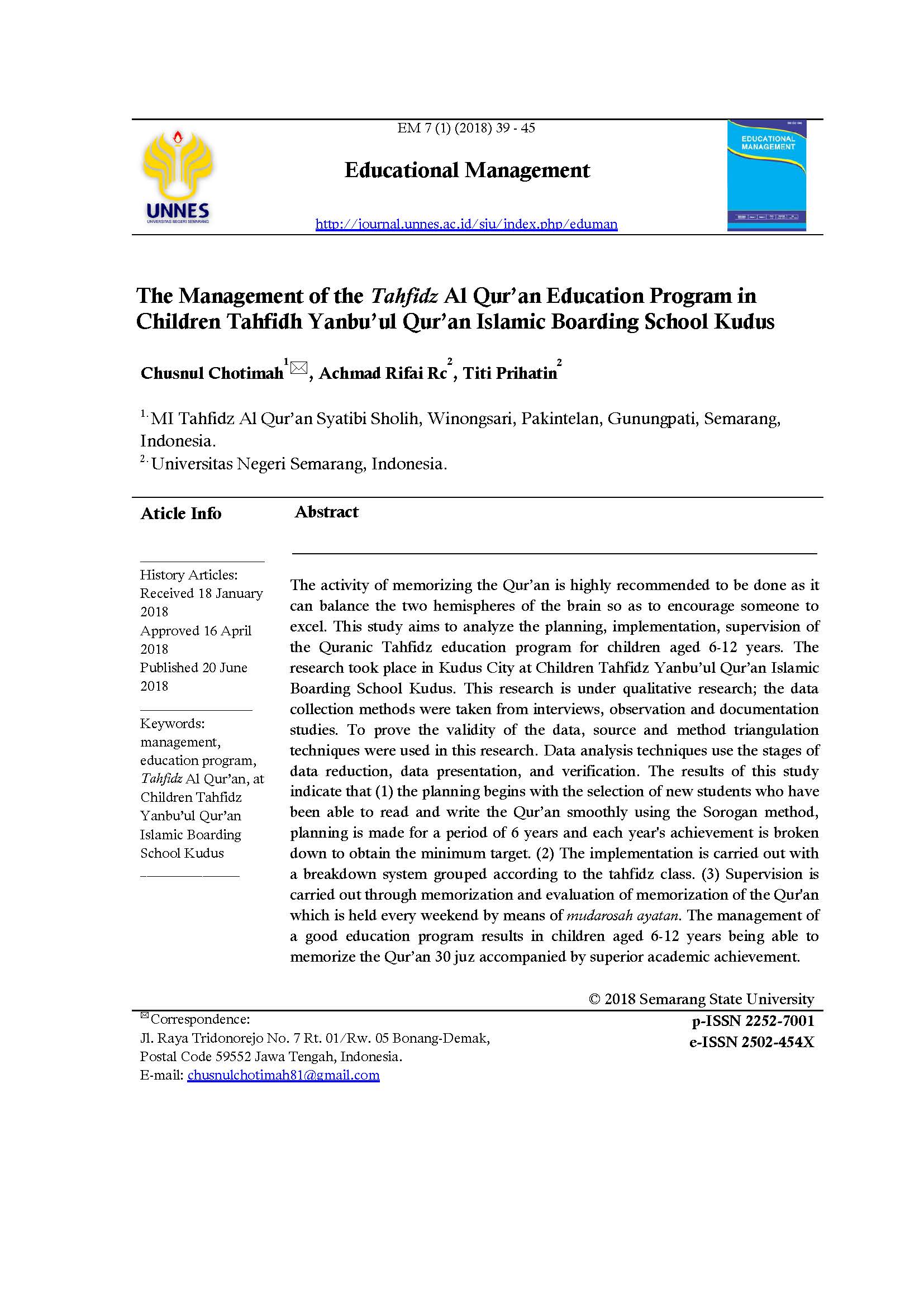The Management of the Tahfidz Al Qur’an Education Program in Children Tahfidh Yanbu’ul Qur’an Islamic Boarding School Kudus
Abstract
The activity of memorizing the Qur’an is highly recommended to be done as it can balance the two hemispheres of the brain so as to encourage someone to excel. This study aims to analyze the planning, implementation, supervision of the Quranic Tahfidz education program for children aged 6-12 years. The research took place in Kudus City at Children Tahfidz Yanbu’ul Qur’an Islamic Boarding School Kudus. This research is under qualitative research; the data collection methods were taken from interviews, observation and documentation studies. To prove the validity of the data, source and method triangulation techniques were used in this research. Data analysis techniques use the stages of data reduction, data presentation, and verification. The results of this study indicate that (1) the planning begins with the selection of new students who have been able to read and write the Qur’an smoothly using the Sorogan method, planning is made for a period of 6 years and each year's achievement is broken down to obtain the minimum target. (2) The implementation is carried out with a breakdown system grouped according to the tahfidz class. (3) Supervision is carried out through memorization and evaluation of memorization of the Qur'an which is held every weekend by means of mudarosah ayatan. The management of a good education program results in children aged 6-12 years being able to memorize the Qur’an 30 juz accompanied by superior academic achievement.


